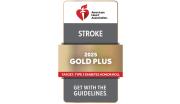
When it comes to heart health, we often think about cholesterol and blood pressure. But there’s another important piece of the puzzle that often goes unnoticed — inflammation. Inflammation is part of the body’s natural defense system, but when it becomes chronic, it can quietly damage blood vessels and increase the risk of heart disease.
One of the ways doctors can measure inflammation in the body — and specifically in the arteries of the heart — is through a simple blood test called high-sensitivity C-reactive protein, or hs-CRP.
A new look at inflammation and heart disease
In September 2025, the American College of Cardiology (ACC) released a new scientific statement highlighting that inflammation plays a critical role in cardiovascular disease. They emphasized that hs-CRP is an inexpensive, widely available test that can help clinicians identify people at increased risk, even when cholesterol levels appear normal (News-Medical, Sept. 29, 2025).
In plain language: if your arteries are irritated or inflamed, hs-CRP can detect it before symptoms appear. This makes it a valuable early-warning tool — a “smoke detector” for the heart.
What the numbers mean
According to Zohair Ali, MD, a cardiologist with Penn Cardiology Somers Point, a reading above 2 to 3 milligrams per liter is considered elevated.
“If somebody’s concerned and says, ‘Do I have a high level of this protein?’ the first thing we look at — before medication — is lifestyle,” Dr. Ali explained. “That means avoiding processed and fatty foods, eating more vegetables and fruits, increasing lean protein and fish, and getting regular exercise. Exercise has been shown to reduce inflammation.”
If an elevated hs-CRP is found, Dr. Ali says the next step is to look at other blood markers such as apolipoprotein B, lipoprotein (a), and LDL cholesterol, and calculating ASCVD. ASCVD is a risk score that is a 10-year percentage estimate of an individual's risk for having a heart attack or stroke, calculated using factors like age, sex, race, total and HDL cholesterol, systolic blood pressure, diabetes status, and smoking status. Another test that can be done to assess a patient's cardiovascular risk is a coronary calcium score - a CT scan of the heart to look for plaque buildup,” he said.
Why inflammation matters
Chronic inflammation can damage the inner lining of blood vessels, making it easier for plaque to build up. Over time, this process — called atherosclerosis — can lead to heart attack or stroke. “Just like you can have inflammation in other parts of the body, such as in arthritis, you can have inflammation in your arteries,” said Dr. Ali. “That can accelerate the development of plaque and blockages.”
The ACC report noted that in patients with known cardiovascular disease, high hs-CRP levels were as predictive of future events as LDL cholesterol. This means that even if cholesterol levels are well controlled, inflammation can still pose a significant risk — another reason prevention is so important.
Managing and lowering inflammation
So, what can you do to lower your hs-CRP levels?
- Adopt a heart-healthy lifestyle: Eat more fruits, vegetables, fish, and lean protein. Limit processed and fried foods, red meats, and added sugars.
- Exercise regularly: Aim for about 150 minutes per week of moderate activity such as brisk walking or cycling.
- Quit smoking and manage stress: Both can worsen inflammation.
- Control other risk factors: High blood pressure, diabetes, and obesity all increase inflammation.
- Discuss medication options: Statins — cholesterol-lowering drugs — may help reduce inflammation indirectly, and newer medications that specifically target inflammation are currently in development.
Dr. Ali emphasizes that every case is different. “When it comes to these markers, it’s a lot of shared decision-making,” he said. “Nothing is clear-cut — it’s tailored to the patient. Ultimately, our goal is to prevent heart disease before it happens.”
Dr. Zohair Ali treats patients at Penn Cardiology in Somers Point, located on the second floor of 155 Medical Center Way. To make an appointment at Penn Cardiology in Somers Point, call 609-365-3100.










